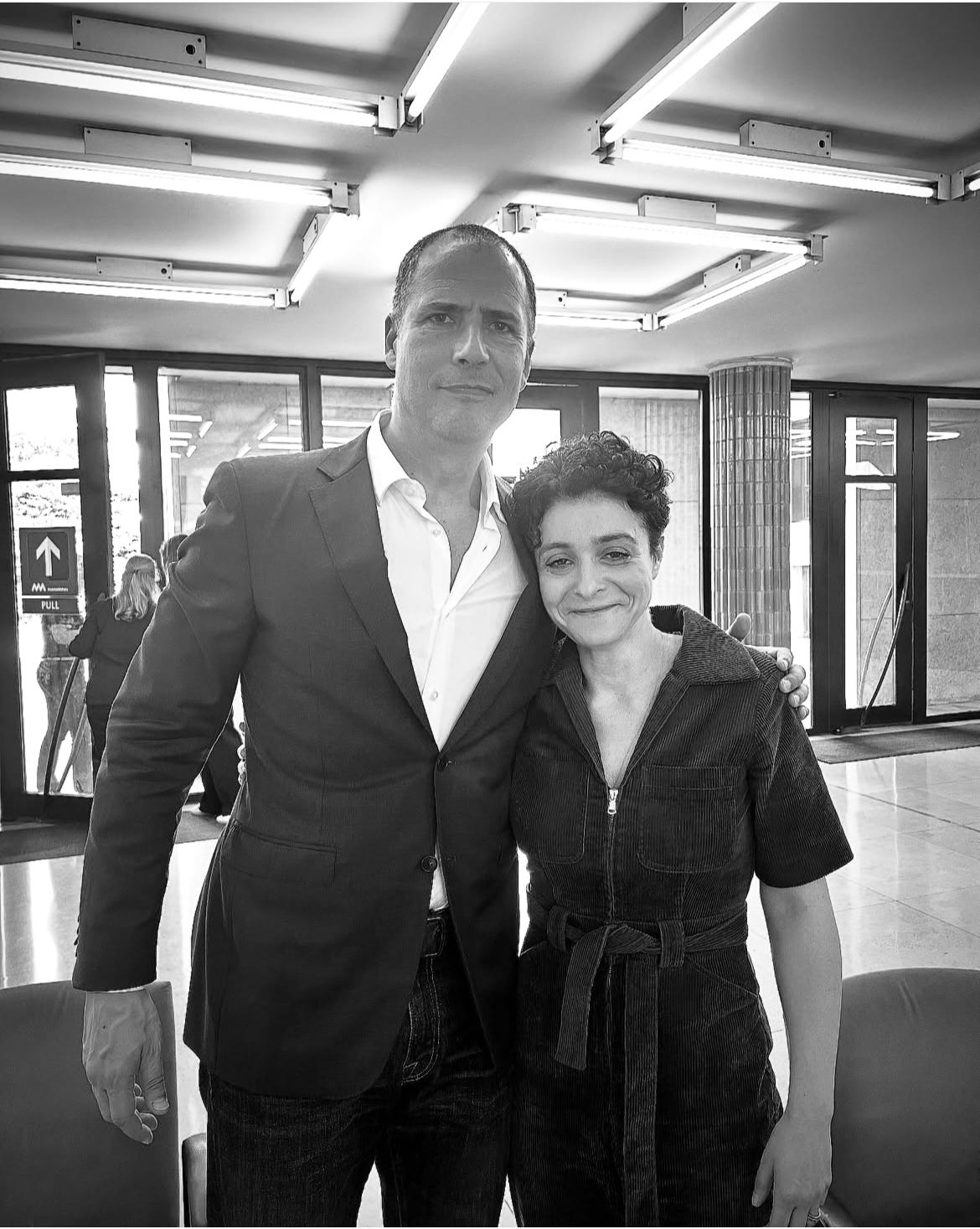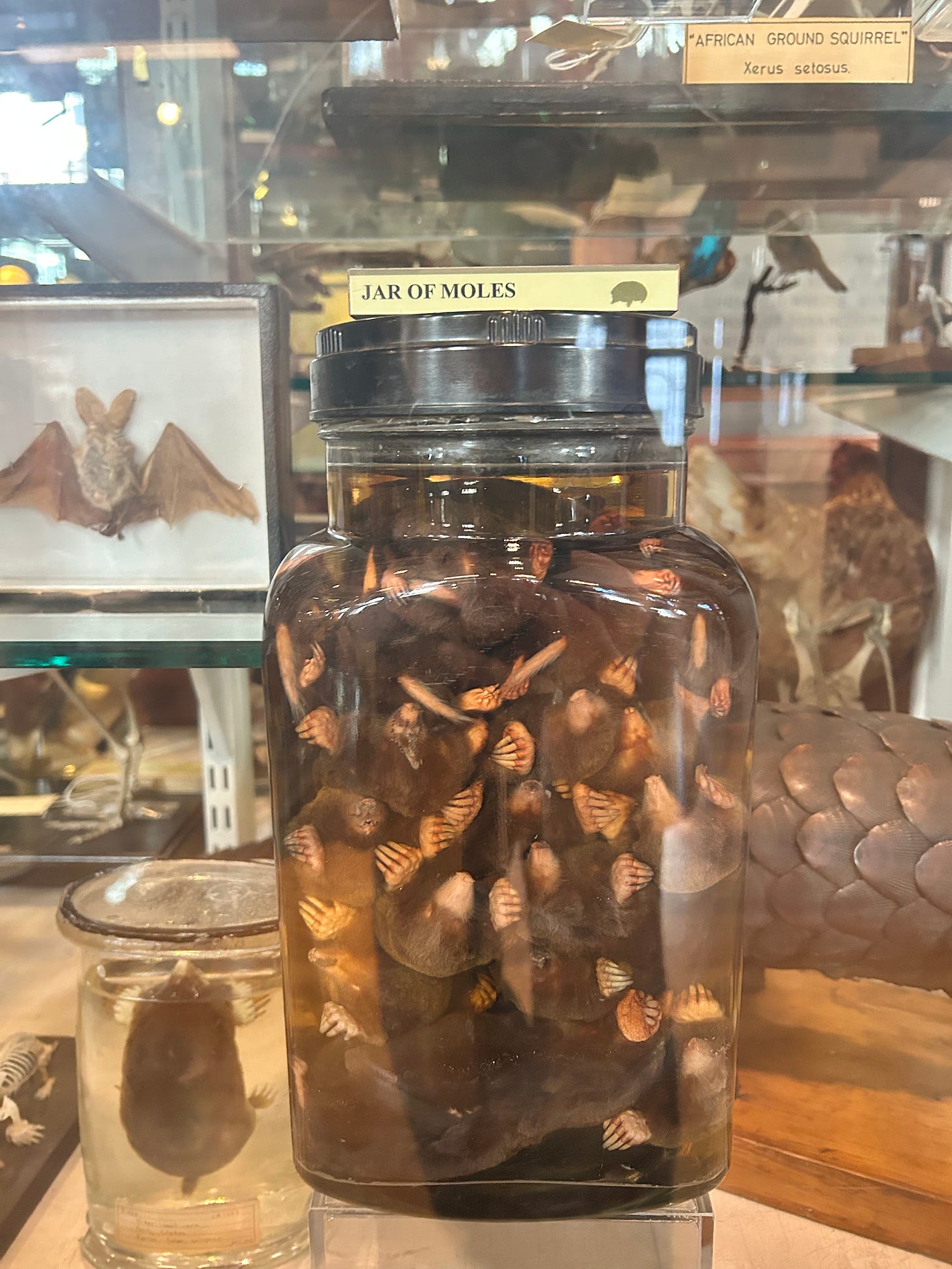LRN No. 47: learning how to suture hearts
Plus: robôs sexuais and the disappearing art of translation
A career in journalism is unlikely to make you rich or famous, but it will give you access to the most fascinating people, places and situations on earth. Elon Musk can’t buy the experiences I’ve had.
I felt this viscerally - both literally and metaphorically - a few weeks ago, when I was at Brighton and Sussex Medical School recording a documentary for BBC Radio 4, in which I got to learn how to perform emergency surgery.
Well, not really. I got to learn how surgeons learn to perform emergency surgery. And I did get to attend a surgical training course, alongside seasoned surgeons who had each paid £1,500 out of their own pocket to be there.
Longtime LRN readers will know that I’ve spent years looking into body donation - why people donate, what happens to their bodies when they do, and how people who use cadavers feel about the dead human beings they are cutting into. My Radio 4 programme, imaginatively entitled ‘Bodies’, looks at what happens to cadavers used on surgical training courses.
Half of all bodies donated in the UK end up being frozen, defrosted and then used by surgeons (rather than embalmed and used by undergraduate anatomy students) to gain experience, or develop new techniques, instruments and implants. I’m glad they do this on a dead body before they do it to the rest of us.
We all know about organ donation, but there has been no public information campaign about donating bodies. Medicine depends on the curiosity and resourcefulness of the general public to find out how to donate. And there are never enough donors. When there's a shortfall, medical schools buy bodies from the US, where cadavers can be supplied for profit. (Chapter 12 of The Price of Life is about the price of an American cadaver).
Brighton and Sussex Medical School and the Royal College of Surgeons allowed me to come along to a Definitive Surgical Trauma Skills course, in which surgeons learn how to save the life of someone who has suffered a traumatic injury. I’m talking gunshot wound surgery, road traffic accident surgery, open-up-the-chest-and-suture-the-heart-after-a-stabbing surgery - the kind of scenario where there’s no time for diagnostic tests or scans. “Make a decision, make an incision”, as the no-nonsense surgeon leading the course declared.
What a privilege it was to get to learn what happens in those situations, and to have it explained to me by surgeons at the top of their game. And I learned something I wasn’t expecting: the key surgical skill is actually confidence. Cadavers give surgeons the readiness to act, the ability to think, I’ve done this before and I know what I’m doing, at a time when they will need it most.
You can find out how to donate your body here. And you can hear Bodies on Radio 4 at 3.30pm on 7th May, and on BBC Sounds shortly after that.

I had a fantastic time at the Literatura em Viagem literary festival in Matosinhos, Portugal, talking about my first book, Sex Robots & Vegan Meat. I was interviewed by Ricardo Araújo Pereira, who is kind of like the Portuguese Jon Stewart - incredibly clever and funny and sharp, and also massively famous in Portugal. It meant that my session was absolutely packed with people who had come to see him, rather than me, but I think I won them over with my anecdotes about choosing between 42 different styles of nipple in the sex doll factory.
I finally got to meet Sara Veiga, who translated SR&VM into Portuguese, and is doing The Price of Life next. But beyond that, she has little idea what the future holds for her, she told me. Now that we know how Meta has been training its AI on pirated books that it knows have been stolen - both in their original form and in translation - even seasoned translators like Sara know that their professional days are numbered.
I would so much rather that my books are translated by humans than machines, but will that soon be an impossibility?
ICYMI: Here is my piece for The Guardian about how Renée Ballou’s egg was stolen during her fertility treatment and given to Carole LieberWilkins, who thought it had been willingly donated. Carole gave birth to a son, Daniel. What happened next confirms that, even in the worst circumstances, human beings can be genuinely good to one other. It was an honour to speak to Carole, Renée and Daniel, and tell their story.
Things that have caught my eyes and ears:
cannot express how much I loved seeing Beck with the BBC Concert Orchestra at the Royal Albert Hall…
…and his support act, Molly Lewis, who is a professional whistler. She whistled, for half an hour, in the Royal Albert Hall, and it was hilarious, and also kind of spellbinding
enjoyed this NYT piece (£) about the rise of humanoid domestic robots, which nobody seems to be trying to have sex with, yet. It turns put that emptying the dishwasher is actually harder than rocket science
cannot stop listening to Fourtet’s remix of The Cure’s Alone - two of my favourites together at last.
And - by popular demand - here’s the jar of pickled moles I spared you from seeing last time:





Dear Jenny, the fact that you worry not only about the use of stolen content to train AI but also the artificial translation makes me a bit more optimistic. Thank you for that.
Your (mostly) human translator,
Sara
What an amazing opportunity to learn about emergency surgery, Jenny.
I found your Guardian piece about the stolen egg fascinating. After I had triplets in 1986 (total fluke), I got involved in supporting other parents of multiples. At the time there was concern that advances in fertility treatment were leading to more higher multiple births than hospitals could cope with (all the associated risks of prematurity and ill health), and the same was happening internationally – it was all quite Wild West, with very serious implications – so I reported on the ethical side of it and the personal dilemmas of those parents affected. I love your nitty gritty topics!